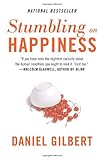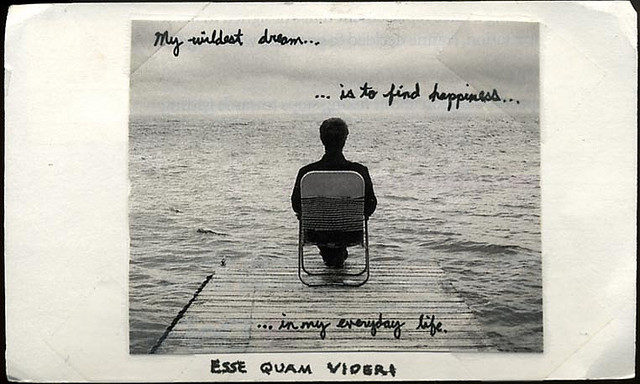It’s easy to view happiness like it’s a quest that we’re on. We can see it lurking around the next corner: I’ll be happy once I get that promotion, once I pay off that debt, once I have kids, once I… you fill in the blank.
But there’s always a new corner to turn. This view of happiness keeps us on an endless treadmill, where we’re constantly seeking something else. But why is this? Why aren’t we happy once we achieve what we want? Why do we simply set up a new goal and pursue that?
Research in positive psychology suggests that perhaps it’s because we don’t actually know what makes us happy! We think that these various things we desire and goals we set up will bring us happiness, but it turns out they don’t impact nearly as much as we think. In fact, as you’ll see in the video below, a lottery winner and a person who becomes a paraplegic both return to their former levels of happiness in about a year!
Check out the evidence in this interesting Ted Talk from Dan Gilbert:
Gilbert also authored the book Stumbling on Happiness, where he discusses the reasons for this in more detail. Here are a few of those main reasons:
1. We tend to have a happiness “set-point.”
Just like our bodies have with weight, our minds tend to have a set point for happiness. This means that if something really good or bad happens to us, we may experience a short term swing in our happiness, but we tend to bounce back to where we were before that. However, just like with weight, we can alter our set point as well, it just takes more than we might think.
2. We over-estimate how much impact any given event will have on us.
We think winning the lottery will bring us life-long joy or losing our legs or arms would devastate us forever. And yet, it turns out that this really isn’t very true at all. Even when we see other people go through these things and bounce back, we assume we would be affected differently. We see the happy paraplegic as a heroic example of overcoming obstacles, or the lottery winner as a rare and sad failure.
3. We don’t learn from our mistakes.
Even we get that promotion and aren’t suddenly happy, we set a new goal, the next promotion, or maybe a different, higher paying job, and now think that will be what finally makes us happy. We do this, even though it really made no lasting impact when we achieved our last goal!
All of this makes discussing happiness difficult, because we think we know what will make us happy, and we have a difficult time accepting even overwhelming evidence that we’re wrong. How do we overcome this? Gilbert suggests reaching out to others and simply asking them how it has affected them:
In many domains of life, the experience of one randomly selected other person can beat your own best guess by a factor of two… We all like a trip to Paris better than gallbladder surgery; everybody would rather have a compliment than have their thumb nailed to the floor. The differences between you and other people are so unimportant that you would do better predicting how you are going to like something simply by asking one randomly chosen person how they like it.
Of course, the problem with this is that even when we get an answer, we will still tend to think that we wil be an exception to that rule.
If you watched the video, you also saw that the amount of choice we have plays a large role in our happiness as well. If we have less choice, our synthetic happiness actually increases! Take a minute and think about how much choice the modern American faces constantly:
- What goods or products to buy down to a multitude of brands for each item
- Where to live
- What to major in / what career or job to pursue
- Who we want as a partner
- And on, and on…
We have more options open to us than perhaps any other people in the history of the world. Most of us grew up hearing that “you can be anything you want to be when you grow up.” If only our parents knew that might actually make us less happy!
So instead of constantly trying to peek around that next corner, perhaps we need to start looking somewhere else. Where else do you think we might look?

